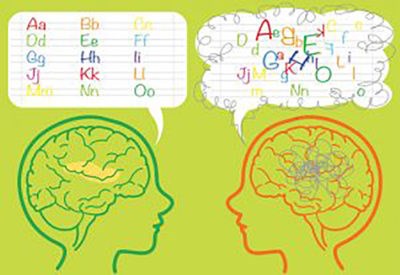
Dyslexia and me
What is Dyslexia?
Throughout my education, I always thought I was less intelligent than other people. My friends were all heading off on their big adventures, moving cities and leaving me behind to start their new lives at university while I stayed in my quiet little city and got a job in a call centre.
I was never academic and always enjoyed more creative pursuits such as art and photography. I tried my best to avoid any work that required a lot of reading or writing. I struggle with reading the most; words, letters, and paragraphs seem to move and dance around the page making it sometimes difficult to follow what’s being said.
Even when some of my friends were diagnosed with dyslexia, I still didn’t fully understand it and that it could also apply to me.
I persevered throughout my education and work life, never fully understanding why I was struggling or why I didn’t feel “clever” compared to those around me. I eventually made peace with the fact that words simply weren’t my forte.
It wasn’t until my early 20s when my manager in the call centre asked if I was dyslexic after reading a written piece of work I completed. I couldn’t answer her as I’d never thought about it before. But from that point, it all became clear - I have dyslexia.
What is dyslexia?
Dyslexia is a common learning difficulty that can cause problems with reading, writing and spelling.
It's a specific learning difficulty, which means it causes problems with certain abilities used for learning, such as reading and writing.
Unlike a learning disability, intelligence isn't affected.
What does dyslexia feel like?
Dyslexia affects people in different ways. For me, if I’m reading a book or any form of text, I often have to read the same line multiple times for it to make sense. The words wobble and letters appear to switch places, so I have to check the word again, as it could have a different meaning.
Filling in forms can be difficult too. I have to double-check everything to make sure I’ve ticked or filled in the right boxes. Sometimes I ask a friend to check the form for me, just to make sure.
It’s not just reading either; writing can be a struggle too. I find myself writing words twice or misspelling simple words.
I think it’s important more people know about the experiences of dyslexic people. If you’ve never been officially diagnosed with dyslexia and what I’ve described sounds familiar, it’s important to know you’re not alone! There’s lots of support and technology that can make things more manageable.
There are also some very famous and intelligent dyslexic people! Albert Einstein, Richard Branson, and Maggie Aderin-Pocock; Astronomer and Scientist, educator, and co-producer of the long-running ‘The Sky at Night’.
What can you do?
A lot has changed since I realised I was dyslexic. I pushed myself to apply for a new role within the NHSBSA’s communications and marketing team, where reading, writing and editing are now an essential part of my work. A fact I still can’t quite believe myself!
There’s lots of support out there for dyslexic people. Many websites and social media platforms have accessibility settings which can change the content to be easier to read. Try changing the size of the text, font, and avoid a stark contrast, such as black and white. Using a coloured background while you’re reading or writing – my preference is a light pastel turquoise– can help a lot too!
Other tips from me would be to try to take your time, don’t rush things, and lean on the assistance of your friends and co-workers to help check things you’re writing or reading. It might also be worth speaking to your manager and organising a Display Screen Equipment (DSE) assessment. As the name suggests, a DSE assessment is an assessment of the technology you use at work. The assessment may identify reasonable adjustments to your working environment which could improve your productivity and health.
For more support, advice or information you can visit British Dyslexia Association.

